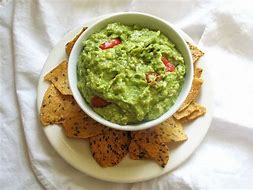January 1, 2025
The Ability Connection
Issue #28
January is National Birth Defects Awareness Month
As we step into the new year, January brings with it an important cause to highlight: National Birth Defects Awareness Month. This month is dedicated to raising awareness about birth defects, their causes, and the steps we can take to prevent them.
Birth defects are structural changes present at birth that can affect almost any part of the body. They can vary from mild to severe and can impact a child’s health, development, and quality of life. According to the Centers for Disease Control and Prevention (CDC), birth defects affect 1 in every 33 babies born in the United States each year. They can be caused by a variety of factors, including genetics, behaviors, and environmental influences. Some common types include congenital heart defects, cleft lip or palate, and spina bifida. While not all birth defects can be prevented, there are steps that expectant parents can take to reduce the risk:
- Prenatal Care: Regular check-ups with a healthcare provider can help monitor the health of both mother and baby.
- Healthy Lifestyle: Avoiding harmful substances like alcohol, tobacco, and certain medications during pregnancy is crucial.
3. Folic Acid: Taking 400 micrograms of folic acid daily before and during early pregnancy can help prevent major birth defects of the baby’s brain and spine.
Awareness and education are key to prevention and support. Here are a few ways you can contribute:
- Spread the Word: Share information about birth defects and prevention on social media or within your community.
- Support Families: Offer support to families affected by birth defects through local organizations or support groups.
- Advocate: Encourage policies that promote healthy pregnancies and support research on birth defects.
By coming together this January, we can make a difference in the lives of countless families. Let’s work towards a future where every baby is born healthy and has the best possible start in life.
For more information and resources, visit the CDC’s Birth Defects page or contact your local health department.
January 30 is Chronic Traumatic Encephalopathy (CTE) Day
Chronic Traumatic Encephalopathy (CTE) is a degenerative brain disorder caused by repeated head injuries, often seen in athletes who play contact sports like football, boxing, and ice hockey. It can also affect military personnel exposed to explosive blasts2.
CTE symptoms can take years or even decades to manifest and may include:
- Cognitive Impairment: Memory loss, confusion, and difficulties with planning and organization.
- Behavioral Changes: Impulsive behavior, aggression, depression, and emotional instability.
- Motor Symptoms: Problems with balance, walking, and motor skills.
The primary cause of CTE is repeated head trauma, which leads to the buildup of abnormal proteins in the brain, causing nerve cell death. This condition is not linked to a single injury but rather the cumulative effect of multiple head impacts. Preventing head injuries is key to reducing the risk of CTE. This includes wearing appropriate protective gear, following safety guidelines in sports, and ensuring proper medical care after any head injury.
Currently, CTE can only be definitively diagnosed post-mortem through an autopsy. While there is no cure, early detection and management of symptoms can help improve the quality of life for those affected. For more information, visit the Mayo Clinic’s page on Chronic Traumatic Encephalopathy. Stay informed and take care of your brain health!
What’s happening?
Welcome Back Ms. Julia!
We are pleased to welcome back our office manager, Ms. Julia Genesky from her maternity leave. She was truly missed. When you see her, please welcome her back. She is the main contact for any class scheduling or billing needs.
Support Penguin Project – See the Show
As many of you know, Ms. Sariah, one of our instructors has not been around as much lately. During this time of year she volunteers with Penguin Project so reduces her work hours. Penguin Project empowers children with special needs through theater. Each year they put on a show and this year it is The Lion King. See the poster hanging in our facility in the parent class waiting area.
Free Evaluations continued in January
We are offering free evaluations this month. Bring your child with special needs and abilities in for a trial class and evaluation this month. Contact us at 470.560.3981 to schedule an appointment.
We are Hiring Instructors
We are looking for instructors for our children’s program. If you have a heart for and experience working with children with special needs please complete a job application at Job Application – BIO Ability or email dawn.koch@bio-ability.com with your interest and availability.
Exercise of the Month: Multi-Joint, Complex Exercises
At Bio Ability we maximize the use of complex movements for brain health and development. Our Adaptive Gymnastics and Ninja programs include a variety of complex movements, skills and exercises in each session. In our Adaptive Fitness Program we often times have the students complete multi-joint, complex movements and for many reasons. We have limited time with them and want to get the most of each workout providing a complete, full body workout. They improve coordination and balance and have many brain benefits. It improved memory, concentration and problem-solving skills. These movements stimulate the brain and neuro pathways allowing the creation of new neuro pathways.
Some basic multi-joint exercises include bench press, overhead press, squats and lunges. You may also see these combined such as a squat with an overhead press and toe raise.
Lunge- Stand in a split stance with the right foot roughly 2 to 3 feet in front of the left foot. Your torso is straight, the shoulders are back and down, your core is engaged, and your hands are resting on your hips. Bend knees and lower your body until the back knee is a few inches from the floor. At the bottom of the movement, the front thigh is parallel to the ground, the back knee points toward the floor, and your weight is evenly distributed between both legs. Push back up to the starting position, keeping your weight on the heel of the front foot.
Squat – Position your hands evenly on the bar and back up and under the bar, so it rests comfortably on your shoulders. Maintaining a wide stance. Keep the weight centered; do not lift from your heels or toes. Slowly bend your knees while standing up straight. Maintain constant, slow, and controlled muscle tension. Inhale as you lower. Slowly return to starting position. Exhale as you push through your heels and stand tall.
Overhead Press- Stand with the weight on your front shoulders. Press over your head until it’s balanced over your shoulders and mid-foot. You can use both hands simultaneously, one hand at a time holding a single barbell held by both hands, or one free weight in each hand.
Fruity Guacamole Recipe
Ingredients
- 2 Hass avocados, cubed
- ½ cup seasonal fruit, diced (strawberry, mango, fig or grape) ¼ cup finely chopped Spanish onion
- 1 plum tomato, seeds removed, finely diced (optional)

- 1 small jalapeño pepper (with seeds), minced
- 3 tablespoons chopped fresh cilantro
- Juice of 1 lime (about 2 tablespoons)
- 1 small clove garlic, minced
- ⅛ teaspoon ground cumin ½ teaspoon sea salt, or to taste
Directions
- In medium bowl, add avocado, seasonal fruit, onion, tomato (if using), jalapeño pepper, cilantro, lime juice, garlic and cumin. Stir until just combined. Add salt to taste.
- Serve with blue corn tortilla chips.
Nutrition Facts
Serving size: 3 tablespoons; Serves 9
Calories: 90; Total fat: 7g; Saturated fat: 1g; Trans fat: 0g; Cholesterol: 0mg; Sodium: 150mg; Total carbohydrate: 8g; Dietary fiber: 4g; Sugars: 3g; Protein: 1g; Vitamin A: 2%; Vitamin C: 10%; Calcium: 2%; Iron: 2%

